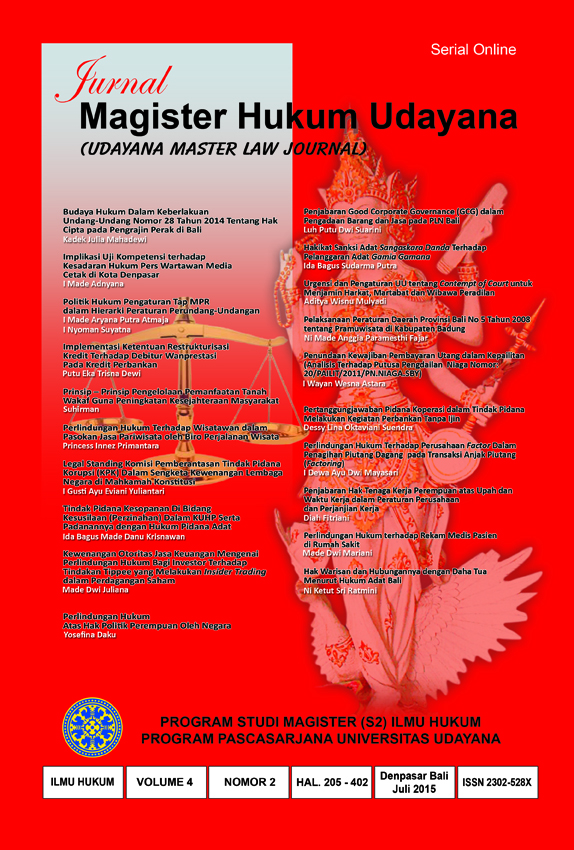POLITIK HUKUM PENGATURAN TAP MPR DALAM HIERARKI PERATURAN PERUNDANG-UNDANGAN
Abstract
The third Amendment of UUD 1945 in 2001 put the position of MPR is no longer as the highest state institution but equal with another state institutions. This is certainly make a legal consequence to the legal product that produced by MPR and that legal product is Tap MPR. Tap MPR is no longer regulated in hierarchy of legislation in article 7 (1) Constitution No. 10 of 2004 on the establishment of legislation because Tap MPR is not included in the general legislation. But then the issuance of Constitution No. 12 of 2011 set back Tap MPR in hierarchy of legislation because some of Tap MPR is still valid in accordance with the Tap MPR number of I / MPR / 2003 on Judicial Review Matter and Legal Status of the Tap MPR Decree from 1960-2002. If it viewed through a political perspective, it can be said that Tap MPR Decree setting tug in the hierarchy of legislation can be said to be inconsistent of legal political or unclear. Said to be inconsistent or unclear because it is not in line with changes in the MPR authority and contrary to the theory of hierarchy of norms as a result of changes in the authority of MPR must also align with the legislation and do not deserve to be above the legislation.
The debate re-occurs when the authority of the Constitutional Court to review the constitutionality of MPR is considered contrary to the 1945 Constitution questionable. Is the Constitutional Court is authorized to review the constitutionality of Tap MPR towards the UUD 1945? According to the Article 24C of UUD 1945, Constitutional Court is only authorized to review legislation towards UUD 1945. There is void of norm on the authority of the Constitutional Court but on the other side, citizens who feel their constitutional rights are violated by the existence of the MPR cannot do anything. The Constitutional Court was established with the aim of legislation under the Constitution does not conflict with the UUD 1945, the next purpose is to protect and ensure the constitutional rights of citizens contained in the UUD 1945 in order not to be violated by officials or state agencies. Departed from that purpose then the Constitutional Court is authorized to review the constitutionality of Tap MPR is considered contrary to the UUD 1945.
Downloads
Keywords
Jurnal Magister Hukum Udayana (Udayana Master Law of Journal) by Faculty of Law Udayana University is licensed under a Creative Commons Attribution-NonCommercial 4.0 International License.



















